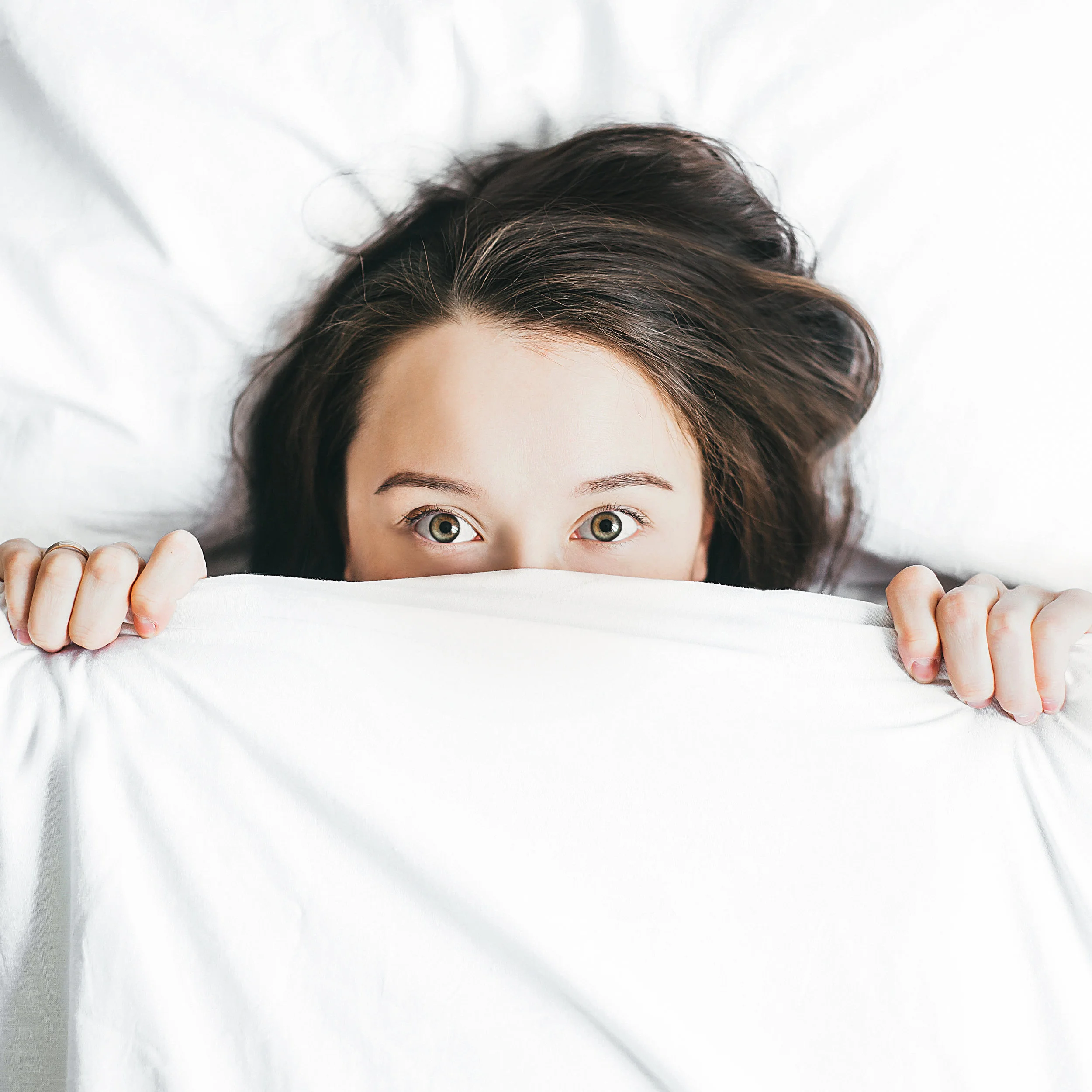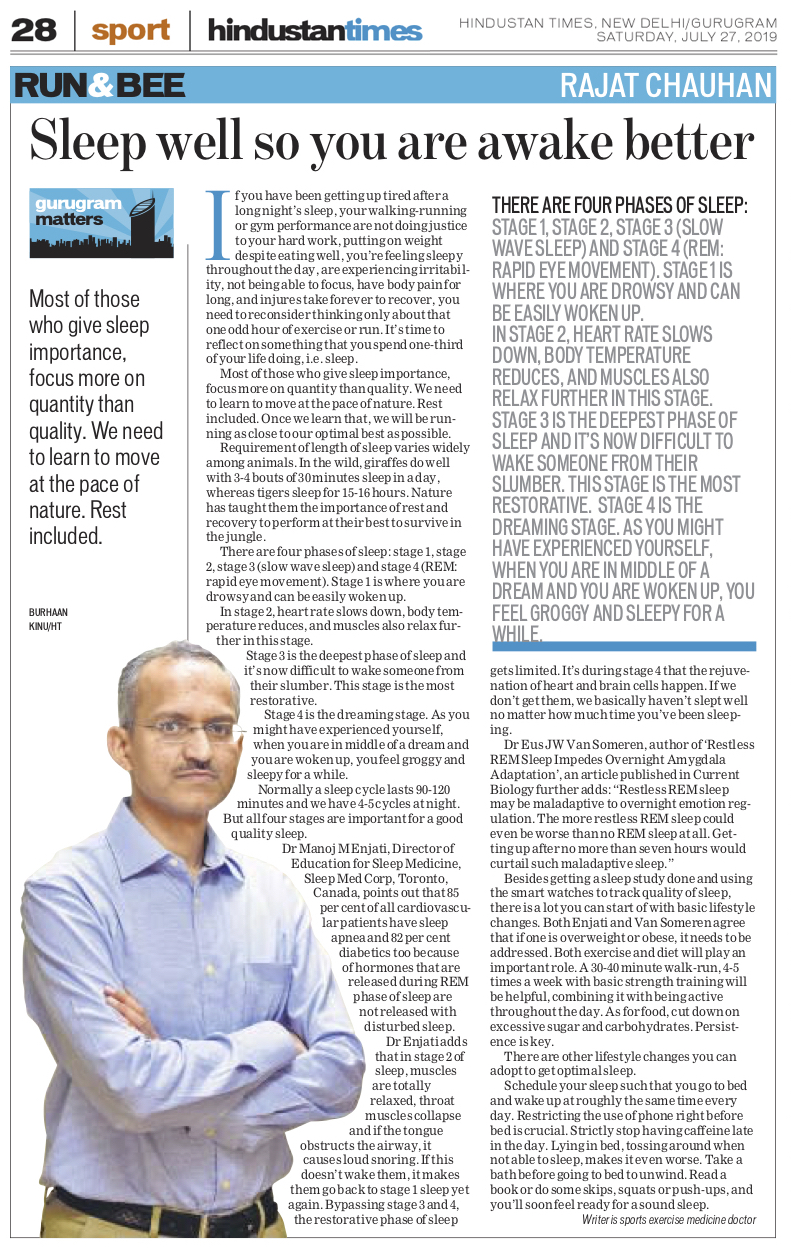Sleep well so you are Awake better
Extended version of my column Run&Bee in Hindustan Times
Pic powered by Unsplash, from Alexandra Gorn @alexgorn
If you have been getting up tired after a long night’s sleep, your walking-running or gym performance are not doing justice to your hard work, putting on weight despite eating well, you’re feeling sleepy throughout the day, are experiencing irritability, not being able to focus, have body pain for long, and injures take forever to recover, you need to reconsider thinking only about that one odd hour of exercise or run. It’s time to reflect on something that you spend one-third of your life doing, i.e. sleep.
Pic powered by Unsplash, from Bernice Tong @tongbernice
Most of those who give sleep importance, focus more on quantity than quality. We need to learn to move at the pace of nature. Rest included. Once we learn that, we will be running as close to our optimal best as possible. Requirement of length of sleep varies widely amongst animals. In the wild, giraffes do well with 3-4 bouts of 30 minutes sleep in a day, whereas tigers sleep for 15-16 hours. Nature has taught them the importance of rest and recovery to perform at their best to survive in the jungle.
Pic powered by Unsplash, from Maria Freyenbacher @freyenbacher
There are four phases of sleep: stage 1, stage 2, stage 3 (slow wave sleep) and stage 4 (REM: rapid eye movement). Stage 1 is where you are drowsy and can be easily woken up. In stage 2 heart rate slows down, body temperature reduces, and muscles also relax further in this stage. Stage 3 is the deepest phase of sleep and it’s now difficult to wake someone from their slumber. This stage is the most restorative. Stage 4 is the dreaming stage. As you might have experienced yourself, when you are in middle of a dream and you are woken up, you feel groggy and sleepy for a while.
Normally a sleep cycle lasts 90-120 minutes and we have 4-5 cycles at night. But all 4 stages are important for a good quality sleep.
Pic powered by Unsplash, from Ashes Sitoula @awesome
“85% of all cardiovascular patients have sleep apnea and 82% diabetics too because of hormones that are released during REM phase of sleep are not released with disturbed sleep.”
Pic powered by Unsplash, from jarupon tapdam @kriz1992
“In stage 2 of sleep muscles are totally relaxed, throat muscles collapse and if the tongue obstructs the airway, it causes loud snoring. If this doesn’t wake them, it makes them go back to stage 1 sleep yet again. By-passing stage 3 and 4, the restorative phase of sleep gets limited. It’s during stage 4 that the rejuvenation of heart and brain cells happen. If we don’t get them, we basically haven’t slept well no matter how much time you’ve been sleeping.”
Pic powered by Unsplash, from NeONBRAND @neonbrand
““Restless REM sleep may be maladaptive to overnight emotion regulation. The more restless REM sleep could even be worse than no REM sleep at all. Getting up after no more than 7 hours would curtail such maladaptive sleep.””
Besides getting a sleep study done and using the smart watches to track quality of sleep, there is a lot you can start of with basic lifestyle changes. Both Enjati and Van Someren agree that if one is overweight or obese, it needs to be addressed. Both exercise and diet will play an important role. 30-40 minutes of walk-run, 4-5 times a week with basic strength training will be helpful, combining it with being active throughout the day. As for food, cut down on excessive sugar and carbohydrates. Persistence is key.
Pic powered by Unsplash, from Matthew T Rader @matthewtrader
There are other lifestyle changes you can adopt to get optimal sleep. Schedule your sleep such that you go to bed and wake up at roughly the same time every day. Restricting the use of phone and computer right before bed is crucial. Strictly stop having caffeine late in the day. Lying in bed, tossing around when not able to sleep, makes it even worse. Take a bath before going to bed to unwind. Read a book or do some skips, squats or push-ups, and you’ll soon feel ready for a sound sleep.
Pic powered by Unsplash, from Tamar Waskey @tamar_waskey
Print version below








